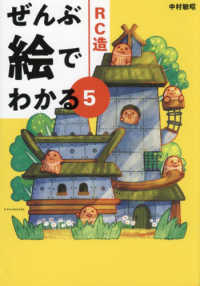- ホーム
- > 洋書
- > 英文書
- > Religion / Ethics
Full Description
Three of the most influential Catholic theologians of the twentieth century—Bernard Lonergan, John Courtney Murray, and Karl Rahner—were all born in 1904, at the height of the Church's most militant rhetoric against all things modern. In this culture of suspicion, Lonergan, Murray, and Rahner grew in faith to join the Society of Jesus and struggled with the burden of antimodernist policies in their formation. By the time of their mature work in the 1950s and 1960s, they had helped to redefine the critical dialogue between modern thought and contemporary Catholic theology.
After the détente of the Second Vatican Council, they brought Catholic tradition into closer relationship to modern philosophy, history, and politics. Written by leading scholars, friends, and family members, these original essays celebrate the legacies of Lonergan, Murray, and Rahner after a century of theological development. Offering a broad range of perspectives on their lives and works, the essays blend personal and anecdotal accounts with incisive critical appraisals. Together, they offer an accessible introduction to the distinctive character of three great thinkers and how their work shapes the way Catholics think and talk about God, Church, and State.




![別冊少年マガジン 2022年11月号 [2022年10月7日発売]](../images/goods/ar2/web/eimgdata/EK-1305676.jpg)


